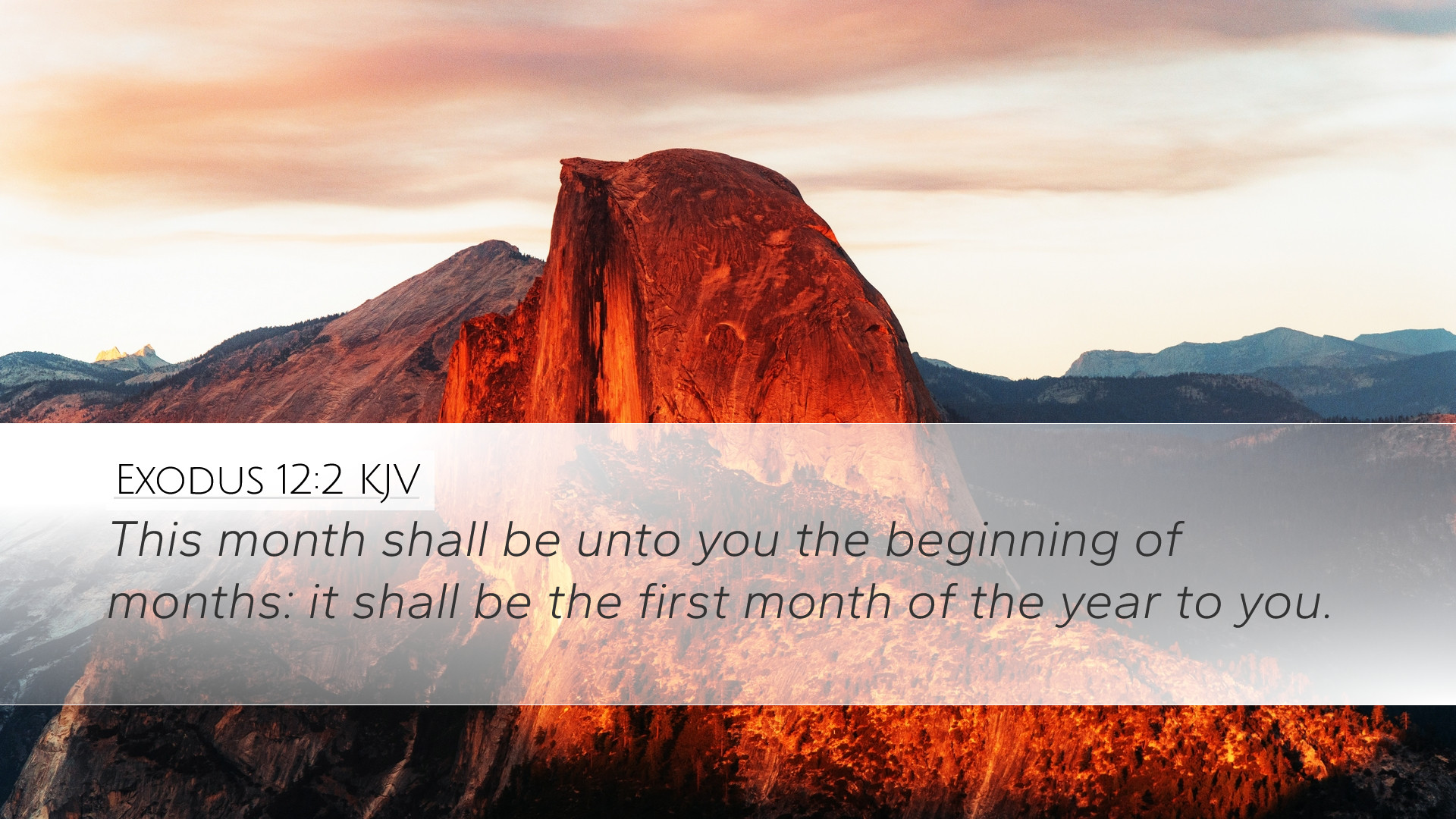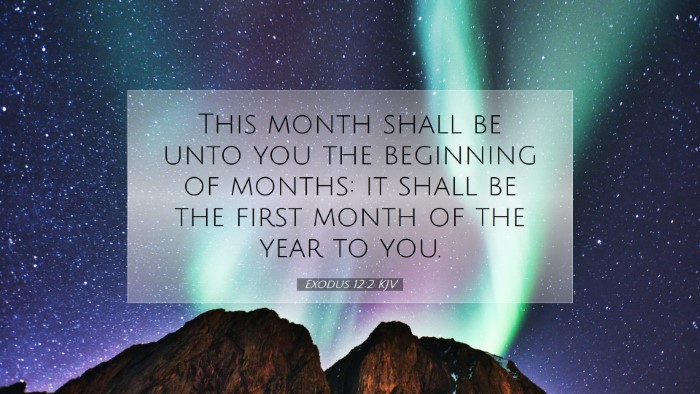Exodus 12:2 - Commentary Summary
Text of Exodus 12:2 (KJV):
"This month shall be unto you the beginning of months: it shall be the first month of the year to you."
Introduction
The passage of Exodus 12:2 marks a significant turning point not only in the narrative of the Exodus but also in the liturgical calendar of Israel. This verse is a divine revelation that establishes the month of Abib (or Nisan) as the inaugural month of the Jewish calendar. It provides theological and practical implications for worship, identity, and national significance, which are elaborated upon in various public domain commentaries.
Theological Significance
The commandment given in this verse is rich in theological meaning:
- Divine Authority: The declaration "This month shall be unto you" indicates God’s sovereignty in determining time and seasons for His people. The reorientation of their calendar demonstrates His authority over history and specific events in their lives.
- New Beginnings: By setting this month as the beginning, God emphasizes the theme of liberation and new beginnings. Matthew Henry notes this change reflects the transition from slavery to freedom, akin to a new creation.
- Identity and Community: Albert Barnes comments on how this ordinance established a national identity and communal aspect of worship, cultivating a sense of belonging among the Israelites as they celebrated their deliverance.
- Salvation History: Adam Clarke emphasizes that this passover event prefigures salvation through Christ, positioning the inception of the Jewish year as a symbol of impending deliverance and liberation from sin for all believers.
Cultural and Practical Implications
The observance of the month of Nisan as the first month impacted several aspects of communal life:
- Liturgical Calendar: The month serves as the foundation for annual feasts, particularly the Passover, establishing a rhythm of remembrance in which God’s saving acts are commemorated regularly. Matthew Henry elaborates on the importance of remembering these acts as an act of faith.
- Civil Life: The adoption of this new calendar also had ramifications for agricultural practices and civil life, connecting the cycles of nature with the liturgical year. The transition underscores the link between faith and daily living.
- Relational Dynamics with God: This moment serves to reassert the Israelites' identity as God’s chosen people. Clarke suggests that it formalized their relationship with God, marking them as separate from other nations and setting standards for holiness.
Exegesis
Upon closer examination of the Hebrew context of Exodus 12:2, we find layers of meaning:
- Translation and Language: The term for "month" in Hebrew is "chodash," which signifies not just a lunar month but carries connotations of renewal, further reinforcing the notion of a fresh start.
- Historical Context: The selection of this particular moment for the new beginning was pivotal. Clarke highlights that after decades of oppression, it starts a new chapter not only in their history as a nation but also in their covenant with God.
Conclusion
In conclusion, Exodus 12:2 stands as a hallmark of theological significance and communal identity for the Israelites. Combining insights from Matthew Henry, Albert Barnes, and Adam Clarke reveals a rich tapestry of meaning surrounding this verse. It is a reminder of God’s sovereign hand in the course of human history, His call to new beginnings, and the importance of communal memory in shaping the identity of His people. For pastors, students, and scholars alike, this passage emphasizes the importance of understanding our spiritual heritage and the significance of God’s redemptive plan through the lens of time and tradition.
References for Further Study
- Henry, Matthew. *Commentary on the Whole Bible*
- Barnes, Albert. *Barnes' Notes on the Bible*
- Clarke, Adam. *Clarke's Commentary on the Bible*


